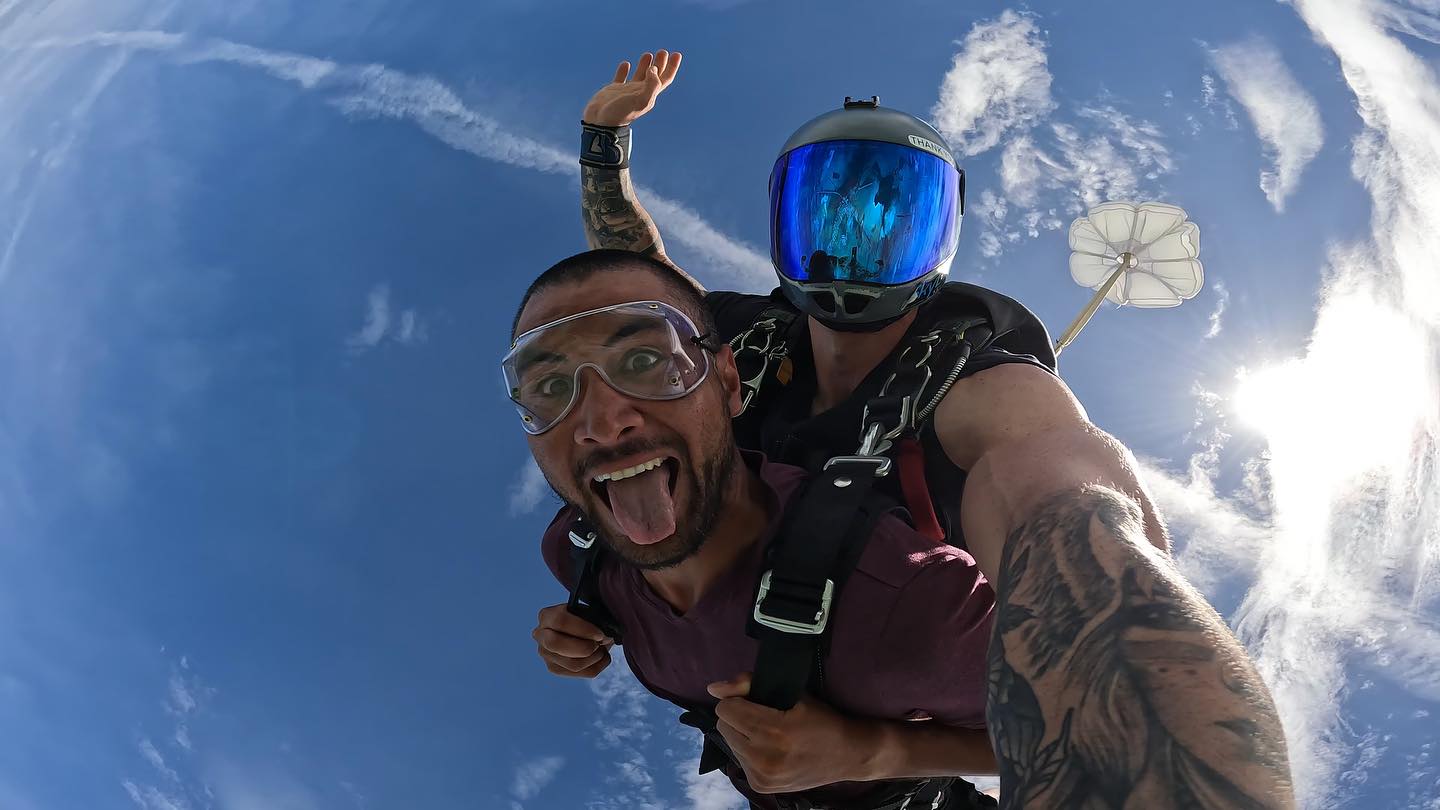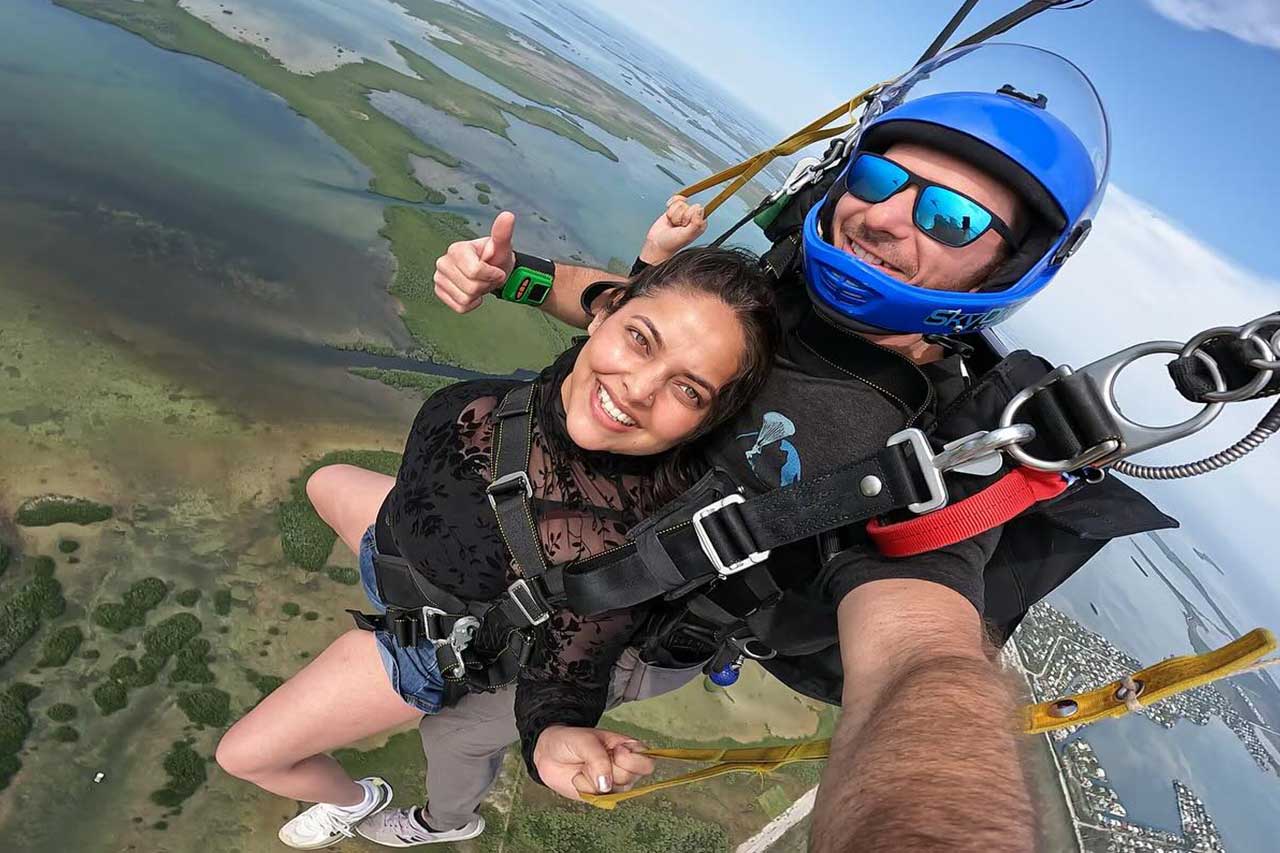Can You Skydive With A Pacemaker?
Skydiving
Posted by: Skydive Key West
11 months ago
Skydiving is all things heart-pounding, making skydiving with heart conditions a significant concern.
Can you skydive with a pacemaker? Skydiving with a pacemaker is not necessarily off the table, but it definitely adds complexity and risk to the process. Let’s take a dive into the considerations and potential risks for that thrill-seeking heart of yours.

Pacemakers vs Skydiving: How They Interact
What is a pacemaker and how do they work? Pacemakers are small, battery-operated devices that are implanted into the chest to help regulate someone’s heartbeat. A pacemaker keeps track of the heart’s electrical activity, and when/if there’s an abnormality in the beat, it sends out little electrical signals to get the heart back on track and beating normally.
How does all of that interact with the process of a skydive? Although people do it all the time, jumping from airplanes can put a significant amount of stress on your body – shocker, right? With a pacemaker in mind, parts of a skydive to consider are: pressure changes in the airplane and while descending, physical stress, G-forces, difficult landings, and emotional stress.
Can You Skydive With A Pacemaker: Risks
You may be thinking, “Skydiving is already filled to the brim with risk, what’s the big deal in adding a little more!?” And you, lovely person, are sorely mistaken. Yes, skydiving is an extreme sport that carries an inherent level of risk, but it’s carefully calculated risk. Skydivers do everything they can – from using the best gear and state-of-the-art technology to giving and getting gear checks before every jump – to mitigate risk. Let’s take a more in-depth look.
Pressure changes.
The ascent and descent during a skydive are both rapid. Jump planes are fabulous, but they’re not as cushy as a commercial jet and are not pressurized, making those pressure changes a bit more noticeable. Pressure changes can potentially affect the way a pacemaker functions.
Physical stress.
Do you have to be super in-shape to skydive? Nope! People of plenty physiques are welcome in the sky, but the sport does place a physical demand on the body. There’s crouching down in the airplane, maneuvering toward the open door, squatting with your instructor, leaping out, and lifting your feet and legs upon landing – it’s totally doable, but can be a lot! Adding extra physical stress to your regular routine can exacerbate underlying heart issues.
G-forces.
Although we aren’t as extreme as Top Gun pilots, we definitely feel some G–forces during the parachute deployment of a skydive, making the deceleration from freefall to canopy flight a big part of the skydive to consider if you have a pacemaker. Parachutes are designed to open with intention, and the initial whoosh of going from over 100 mph to 15 mph in a few seconds has potential to dislodge the pacemaker.
Landing.
Skydive landings are the most exciting part – you’re back on Mother Earth celebrating with loved ones, because you DID IT! For those with a pacemaker, it’s important to remember that landings have potential to be a little jolting. This can exert pressure on the site of the pacemaker, which could cause discomfort or even affect the device.
Emotional stress.
Skydiving is exhilarating in the best way! We wouldn’t really call it stressful – that has a negative connotation – but it can be stress-inducing, even if you don’t know it! Skydiving puts your body and mind through a lot of firsts, and this can ramp up your nervous system. The combination of adrenaline, healthy fear, and excitement can be awesome, but it may also put some extra strain on the ol’ ticker.

Other Heart Conditions That Affect Skydiving
Can You Skydive With Heart Stents?
Heart stents are another consideration for potential skydivers. Stents are designed to keep the arteries open, ensuring nice blood flow to the heart, and stress (physical and mental) can affect them. The primary concern with stents is making sure your heart can handle the added activity and stress levels. Getting the greenlight from a doc is a necessity, and they should be able to get a pretty good feel for your overall heart health and stability of your stent(s).
Can I Skydive With Arrhythmia?
Arrhythmia (irregular heartbeats) presents yet another layer of complexity for the aspiring jumper – ugh! When people decide whether or not to skydive with arrhythmia, it generally depends on the type and severity of the condition. Again, checking in with your doctor prior to jumping is the best route to take.
Can You Do A Skydive With Atrial Fibrillation?
Skydiving is an adventure that gets your heart pounding like nothing else. But what if you have a heart condition, like atrial fibrillation, also called AFib? Having AFib, which is a type of arrhythmia, doesn’t mean you have to give up your skydiving dreams, and many people manage this condition well. We recommend consulting with your medical professional and getting a really tailored medical clearance, not just a casual go-ahead.

What Medical Conditions Stop You From Skydiving?
While many of these don’t automatically disqualify you from freefalling, they’re something to consider, use your better judgment, and consult a medical professional about.
- Pregnancy (disqualifier for first-time/tandem skydivers)
- Epilepsy
- Unstable lung issues (such as pneumothorax)
- Diabetes
- Heart conditions
- Neck/spine/shoulder injuries
In general, can a heart patient do skydiving? People who have heart issues kept at bay do go skydiving, but that doesn’t mean you should. Getting the go-ahead from a medical professional is the best advice we can give you – please take it!
If jumping with us is in your future, we can’t wait to have you! Have any further questions, or want to chat with us about your concerns? Please contact us!




